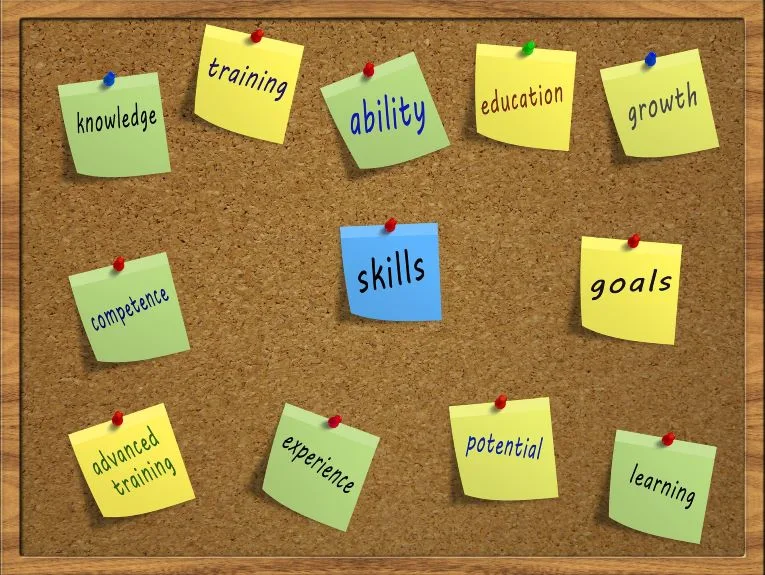After finishing 12th grade, the first thing students often wonder is, “What should I do now for a brighter career?” It can be a bit stressful and overwhelming because some follow advice from family or friends without knowing the latest trends. Some students are unsure and end up going with whatever comes their way.
If you’re in this stage of life, remember it’s crucial, and the decisions you make now will shape your future. In this blog post, we’ve outlined 13 specific steps on how to choose the right career after 12th grade, explaining each one in detail. By following these steps, you can select the right career path after 12th and work towards making your life better.
Give it a read, and you’re likely to find something that sparks your interest.
The Significance of Selecting the Right Career after 12th
A career is more than just finding a job; it’s about discovering a path that brings success, fulfillment, and satisfaction to your life. This process significantly impacts both your personal and professional life.
For instance, if you decide to become an engineer or a doctor, your personal and professional life will revolve around that field. Your achievements, setbacks, satisfaction – everything ties back to how well you pursue that profession.
Therefore, if your career choice doesn’t align with your goals, mindset, favorite subjects, or interests, you won’t find true happiness. Even if your job pays well and you lead a comfortable life, there’s a lingering sense of something missing or the feeling that you could have chosen a different path and live a better lifestyle.
That’s why it’s crucial to choose the right career early on so you won’t have regrets later. By following the steps ahead, we believe you can pinpoint the perfect career for yourself.
Self Discovery: The First Step in Career Decision-Making for 12th Students

Before making career decisions, embark on a journey of self-discovery. This involves understanding your likes and dislikes and shaping the blueprint for your future. Self-discovery is about finding your true self, not what others think or recognize you for.
To simplify this process, I’ve divided it into two sections. First, pinpoint your passions and interests, and then identify your strengths and weaknesses.
- Uncovering Your Passions and Interests
The initial step in self-discovery involves identifying your passions and interests. This crucial step guides you toward the right career path for your lifetime. Take note of your day-to-day activities and pinpoint what truly brings you joy. What activities serve as your intrinsic calling or motivation? Answering these questions brings you closer to selecting a career path that aligns with your true self.
- Recognizing Your Strengths and Weaknesses
Once you understand your interests and activities that bring you happiness, shift your focus to uncovering your strengths and weaknesses. Strengths encompass your positive qualities, while weaknesses highlight areas for improvement. Identify weaknesses that could hinder your goals and work on enhancing those areas by leveraging your skills.
Exploring Career Options

Choosing a career becomes possible when you’re aware of the various options out there. The good news is the possibilities are limitless! With the right information, a strong desire, and an understanding of how to pursue a career path, you can build a career in any field you like.
Don’t limit yourself by thinking your desired career is impossible. Check out this list of 100 career options I found online. Additionally, there are numerous other options waiting to be explored.
By delving into different industries and understanding various job profiles, you gain insight into the numerous possibilities available. Stay updated on recent job market trends to make well-informed decisions about your career path.
Matching Your Education and Skills

Once you’ve explored different industries and job profiles, the next step is aligning your educational background and skills with the career you want to pursue.
Start by understanding what you studied in 12th grade and identifying the degree, certificates, courses, diplomas, or skill sets required for your chosen career path. Take the time to research the relevant skills and knowledge needed to reach your career goals.
For instance, if you aspire to be a successful engineer, fashion designer, veterinarian, psychologist, epidemiologist, lawyer, accountant, dentist, school counsellor, plumber, art director, painter, fabricator, etc., assess the skills you currently possess and determine what additional skills are necessary for that specific career.
Seeking Advice from Experienced Individuals

If you find yourself in a stage of confusion about your career goals, reaching out to experienced individuals for guidance can be immensely helpful. Look within your friend circle or relatives; if anyone can guide you, ask them for advice.
If that’s not an option, consider consulting authorized career counsellors. They can provide valuable insights into career options based on your goals, interests, and aptitude. Easily find reputable career counsellors by searching online.
Connecting with professionals in fields that interest you is another smart move. Their firsthand experiences and advice offer valuable perspectives, aiding you in making more informed choices.
On this blog/website, we present various career options in detail. Take a moment to explore these posts and identify which career opportunity aligns with your aspirations.
Exploring Vocational Courses and Training

Beyond traditional education, it’s crucial to be aware of alternative learning options. Traditional education tends to emphasize theoretical and structured learning, providing essential knowledge about a field.
However, consider additional learning programs like vocational courses and training. These programs focus on practical skills and hands-on experience, unlocking opportunities for unconventional yet fulfilling careers.
By combining both traditional education and additional training programs in your chosen field, you can enhance your knowledge and gain valuable hands-on experience in areas that truly interest you.
Networking and Internships: Steps Closer to Your Career Goal

Building connections or networking with experienced individuals in your chosen field is a powerful strategy to get a step closer to your career goals in the 21st century. Utilize platforms like LinkedIn, attend industry events, and connect directly with professionals to gain valuable insights and potential opportunities.
For a deeper understanding of a specific industry or how its various components function, internships are invaluable tools. They provide firsthand experience, allowing you to apply theoretical knowledge in real-world scenarios. Additionally, engaging in internships across different industries opens doors to expanding your professional network within the field.
Considering Future Growth and Trends in Your Career Choice

When selecting a lifelong career, it’s essential to consider industries that are evolving and expected to experience future growth. In India, sectors like textile, gaming, aviation, insurance, automobile, food, renewable energy, tourism, pharmaceuticals, and emerging areas like web3 are witnessing rapid growth.
Choosing a career in a field with substantial potential for growth ensures long-term job opportunities. Take time to explore industries with untapped potential, such as web3, which is likely to see significant growth in the future.
Moreover, stay updated on the demand for specific skills in the job market. Being aware of and aligning with market demands ensures your skills remain relevant, enhancing your long-term career prospects.
Balancing Passion with Practicality in Your Career

While pursuing a career aligned with your interests or passions is appealing, striking a balance with practical considerations is equally crucial. Harmonize your personal choices with practical options to ensure stability and growth potential in your life.
Consider the stability and security of potential careers, and assess the job market demand in your selected field. This alignment ensures that your career choices support your financial and lifestyle goals. Once you master the art of balancing your aspirations with real-world options, you can concentrate on working towards and achieving your definite goals.
Considering Financial Aspects in Your Career Choice

While seeking happiness and satisfaction in your career is crucial, it’s equally important to consider financial factors. Explore salary expectations for various careers and ensure they align with your financial goals.
Additionally, take into account the costs associated with education and training required for your career goal. Make financially sound decisions by evaluating the investment needed for education and training in your specific field. Assess whether the expected return on investment aligns with your overall financial objectives.
Aligning Career Choices with Personal Values and Lifestyle

Your career choice should harmonize with your personal values, beliefs, lifestyle preferences, and long-term objectives, paving the way for a happier life. Ultimate happiness is attained when your personal values align with your career goals, yielding the desired results.
Therefore, it’s crucial to select a career that allows for the seamless integration of professional and personal commitments. If you have clarity on this aspect, choosing the perfect career path after 12th becomes more accessible, allowing you to focus on achieving your goals.
Decision-Making in the Career Selection Process

The next crucial step is making a decision that you’ll be thankful for throughout your life. With insights into your personal choices, values, interests, and available career opportunities from the previous steps, it’s time to assess the pros and cons of each career choice and understand how they will impact your life.
Consider both short-term and long-term consequences when making your decision. Narrow down your options based on your assessments, preferences, and practical considerations. Focus on careers that align most closely with your goals to ensure you make a decision that sets the foundation for a fulfilling and successful future.
Embracing Career Evolution or adapting to change

It’s crucial to acknowledge that your chosen career path may not be a lifelong commitment. Over time, your thoughts and interests may evolve, leading you to consider something different than your initial choice. In the face of a changing job market, evolving career opportunities, and personal growth, flexibility and adaptability become key.
Consider this example: You decide to become a doctor, influenced by professionals or circumstances, without a clear idea of your specific role within this career. As you delve deeper, you discover numerous options within the medical field, some more popular and financially rewarding than others. Initially, you might not have been aware of these varied paths. This is where the importance of flexibility in your thinking is necessary.
It’s essential to understand each profession deeply and make informed decisions. If needed, be open to revising your initial choice and focus on your evolving decisions. Similarly, the popularity of your chosen career may change over the years due to evolving fields. In such cases, reassess your decision and align your career path with the changing landscape for a more fulfilling journey.
Making Informed Career Decisions

Once you’re aware of all available career options and the necessary skill sets, you can make an informed decision that aligns with your personal choices and goals. Consider both your short-term and long-term objectives, maintaining a clear vision to achieve them through your chosen career.
Establish tangible goals that resonate with your chosen career path. These goals act as milestones, helping you stay focused and motivated throughout your journey. Making a career decision based on a comprehensive understanding of the points mentioned above is far more beneficial than unknowingly choosing a path and later regretting your choice.
Final Thoughts on How To Choose the Right Career After 12th
Selecting the right career after completing 12th grade is a process demanding self-reflection, research, and careful consideration. By evaluating your interests, exploring options, and making informed decisions, you set the stage for a fulfilling career journey. Remember, it’s perfectly acceptable to adapt and grow as you navigate the ever-changing professional landscape.
While choosing a career after 12th grade is undoubtedly challenging, following the steps outlined in this article can make the task a bit easier. We trust that you’ll gain valuable insights on how to choose the right career after 12th by reading this article.
Frequently Asked Questions
How long does it typically take to choose the right career after 12th?
The time it takes varies for each individual. It’s essential to take the necessary time to make a well-informed decision rather than rushing the process.
Is it necessary to follow a traditional educational path for a successful career?
Not necessarily. Alternative paths, such as vocational courses and practical training, can lead to successful and rewarding careers. However, the choice of the educational path is personal.
What role does networking play in choosing the right career?
Networking can provide valuable insights, guidance, and potential opportunities. Building professional connections can significantly impact your career choices.
How important is it to consider future trends when choosing a career?
Considering future trends is crucial to ensure your chosen career remains relevant and offers long-term growth opportunities.
Should financial considerations be the primary factor in choosing a career?
While financial considerations are important, it’s essential to balance them with personal interests, values, and long-term goals.
Which field is best after 12th?
We understand you’re seeking a straightforward answer, but the options are vast. We recommend reading the steps explained in this article, which can spark some ideas in your mind and help you make an informed decision.
